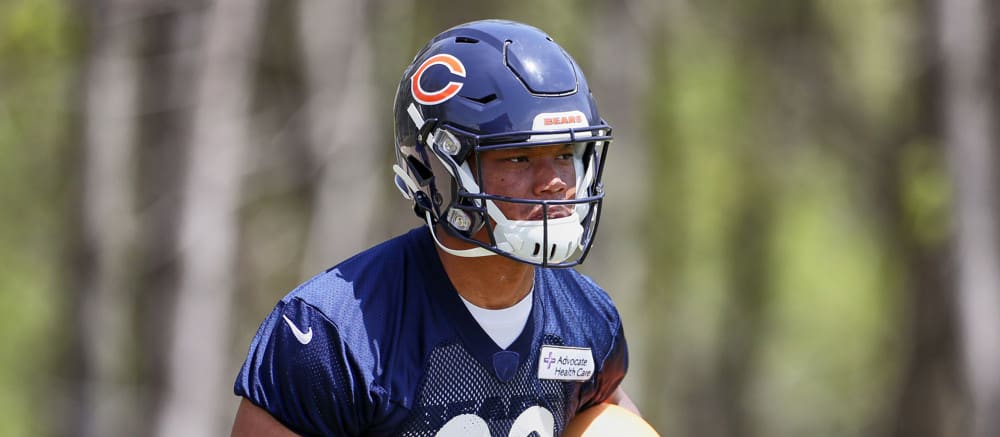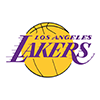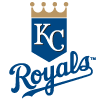This year's rookie class features a number of players who could make a fantasy impact in 2019. Here's a breakdown of the rookies to target.
QUARTERBACK
Kyler Murray, Cardinals
5-10 / 207 / Oklahoma / 1st Round (1st Overall)
The Heisman Trophy winner has a rare blend of arm talent, polish and athleticism. His 11.6 YPA in 2018 was the highest in the NCAA since 2009, and his skill combined with his fit within Kliff Kingsbury's NFL version of the air raid make him the clear No. 1 rookie quarterback. Murray has the escapability he'll need to survive behind Arizona's line, but he's not a run-first quarterback. He should develop into a viable fantasy starter by midseason, if not sooner, though it's possible his stature is somewhat of a hindrance. Fade at your own risk.
Dwayne Haskins, Redskins
6-3 / 231 / Ohio State / 1st (15th)
Haskins is the most talented quarterback on the Washington roster, but Case Keenum's polish and experience might delay the rookie's debut. Once Haskins takes over, he'll have to clean up his footwork and adjust to moving through his progressions. His lack of mobility could be an issue, especially if the Redskins offensive line is riddled by injuries again. But when Haskins has time and is in rhythm, he's an accurate passer (70.0 completion percentage in 2018) with good arm strength. Haskins is entering a well-designed system, but there will be growing pains before he's a reliable fantasy asset.
This year's rookie class features a number of players who could make a fantasy impact in 2019. Here's a breakdown of the rookies to target.
QUARTERBACK
Kyler Murray, Cardinals
5-10 / 207 / Oklahoma / 1st Round (1st Overall)
The Heisman Trophy winner has a rare blend of arm talent, polish and athleticism. His 11.6 YPA in 2018 was the highest in the NCAA since 2009, and his skill combined with his fit within Kliff Kingsbury's NFL version of the air raid make him the clear No. 1 rookie quarterback. Murray has the escapability he'll need to survive behind Arizona's line, but he's not a run-first quarterback. He should develop into a viable fantasy starter by midseason, if not sooner, though it's possible his stature is somewhat of a hindrance. Fade at your own risk.
Dwayne Haskins, Redskins
6-3 / 231 / Ohio State / 1st (15th)
Haskins is the most talented quarterback on the Washington roster, but Case Keenum's polish and experience might delay the rookie's debut. Once Haskins takes over, he'll have to clean up his footwork and adjust to moving through his progressions. His lack of mobility could be an issue, especially if the Redskins offensive line is riddled by injuries again. But when Haskins has time and is in rhythm, he's an accurate passer (70.0 completion percentage in 2018) with good arm strength. Haskins is entering a well-designed system, but there will be growing pains before he's a reliable fantasy asset.
Daniel Jones, Giants
6-5 / 221 / Duke / 1st (6th)
Jones is a major work in progress even as a top-10 pick, so this projects to be a redshirt year unless the Giants pull the plug on Eli Manning's swan song. Jones has an average arm, and his college accuracy and YPA compare to Kyle Boller, Jake Locker and Patrick Ramsey among first-round NFL picks. And beyond Saquon Barkley, there's not much explosiveness to this supporting cast. Jones playing as a rookie could have Josh Rosen-esque results.
Drew Lock, Broncos
6-4 /228 / Missouri / 2nd (42nd)
Trading for Joe Flacco this offseason indicates Denver's immediate plans, but Lock going in the second round of the the draft is also a statement. Flacco missed time with a hip injury in 2018 and is entering his age-34 season, so it is no stretch to expect the rookie to play this year. But Lock struggled against tough competition in college, and his accuracy was scattershot whenever he was asked to throw without a clean platform. He also showed an over-reliance on his arm strength that could get him into trouble in the NFL. If Lock does see the field this season, he will have a serious learning curve and a young group of pass catchers.
RUNNING BACK
Josh Jacobs, Raiders
5-10 / 220 / Alabama / 1st (24th)
Jacobs was never a workhorse at Alabama — his career high for carries in a season was 120 — but that's a role he's looking at in Oakland with no serious competition in the backfield. He's physically built to handle the task, and his receiving ability (9.5 YPT, three TDs in 2018) should keep him on the field for some passing situations. Jacobs lacks explosive speed, but he has the play strength and vision to be an effective runner behind an improved Oakland line. His blend of role and skill makes him the top fantasy rookie overall.
Miles Sanders, Eagles
5-11 / 211 / Penn State / 2nd (53rd)
Blessed with upper-level athleticism, Sanders averaged 5.8 YPC last season as a one-year college starter and ran a 4.49 40 at the combine. But the landing spot couldn't have been much worse for Sanders to make an impact his rookie season. He heads to a team that's never relied on one lead back under coach Doug Pederson, who has instead created specialized roles in deep committees. Sanders also lacks the proven receiving ability to be a third-down threat right away. Without a roster shakeup before Week 1, it's hard to justify spending more than a late flier on Sanders.
David Montgomery, Bears
5-10 / 222 / Iowa State / 3rd (73rd)
Montgomery was a productive and consistent runner who showed strong tackle-breaking ability in college, but he averaged only 4.7 YPC in three years at Iowa State and didn't have a run longer than 39 yards his final season. The combine showed his athletic limitations too — 4.63 40, 28.5-inch vertical — and while that might cap his long-term upside, Montgomery's fit with the Bears bodes well for his 2019 outlook. Jordan Howard's role is up for grabs, so if Montgomery can beat out Mike Davis, he would be in line for one of the largest workloads of any rookie.
Darrell Henderson, Rams
5-8 / 208 / Memphis / 3rd (70th)
The most explosive back in this class, Henderson rumbled for a nation-leading 8.9 YPC his last two seasons — a 344-rush sample — showing sustained big-play ability along with durability. He gives coach Sean McVay's arsenal another dynamic piece, likely replacing incumbent Malcolm Brown as the top backup to Todd Gurley. If Gurley's knee issues cause him to miss time or take a lighter workload — a distinct possibility — Henderson would be in prime position for regular touches in the league's best-designed offense.
Justice Hill, Ravens
5-10 / 198 / Oklahoma State / 4th (113th)
The Ravens are loaded at running back, but none of the other backs offer what Hill does as a runner. He ran the fastest 40 at his position at the combine (4.40) and showed in college that he's a big-play threat in a way that Mark Ingram or Gus Edwards simply are not. Still, Ingram and Edwards will start ahead of Hill on the depth chart, and Lamar Jackson also will get a lot of carries. While Hill should be explosive on a per-play basis, there might not be enough touches available for him this season, even in a run-heavy offense.
Damien Harris, Patriots
5-10 / 216 / Alabama / 3rd (87th)
Harris was a luxury pick for a New England team that already had impressive backfield depth. He's not the pass catcher James White is, nor is he the runner Sony Michel is. Harris has middling speed (4.57 40), but he brings a powerful style and build, and New England's coaching and offensive line can create a fantasy-relevant player out of average talent. Opportunities will be hard to come by early on, given how his skill set overlaps with Michel and Rex Burkhead. Harris also won't challenge for passing-down work, making him a long shot to make a 2019 splash.
Darwin Thompson, Chiefs
5-8 / 200 / Utah State / 6th (214th)
Thompson is a late-round back with skills and team context that make him an intriguing waiver-wire target. He tore through the Mountain West in his lone FBS season, racking up 1,044 yards and 14 TDs on 153 carries while also averaging more than 10.0 YPT on 23 receptions. His pro day highlighted his lower-body explosiveness, including a 39-inch vertical. Damien Williams and Carlos Hyde are roadblocks to Thompson getting meaningful work early, but if snaps open up, he has the talent to produce in Andy Reid's prolific system.
Ryquell Armstead, Jaguars
5-11 / 220 / Temple / 5th (140th)
Armstead is similar to Leonard Fournette in terms of running style, and the former ran a faster 40 (4.45) than the latter did two years ago (4.51). Fournette's durability issues suggest his backups could see significant work in 2019, and with T.J. Yeldon gone, Armstead would only have to leapfrog Alfred Blue for snaps. Armstead's similarities to Fournette would also make it easy for Jacksonville to get the rookie in the mix without having to reinvent its scheme or identity. His fit combined with the depth chart outlook make it easy to imagine Armstead in a regular role as a rookie.
Alexander Mattison, Vikings
5-11 / 221 / Boise State / 3rd (102nd)
Mattison brings physicality but subpar athleticism (4.67 40), making him a mildly interesting prospect. Mattison as a hedge for Dalvin Cook is a different conversation, however. Cook has missed 17 games through two NFL seasons, and even his strongest supporters can't expect him to be full-go for 16 weeks. Mattison is the best back on the team behind Cook, which can't be ignored for fantasy purposes. If Darrell Henderson is Plan A for hedging against an injury-prone starter, Mattison is a solid Plan B.
Devin Singletary, Bills
5-7 / 203 / Florida Atlantic / 3rd (74th)
LeSean McCoy is the starter at running back, but would a Buffalo team entering its win-now window stick with him if he averages 3.2 YPC again? And, yes, Frank Gore and T.J. Yeldon stand in the way, but Buffalo likely wouldn't have spent a Day 2 pick on Singletary if it didn't have a plan for him. Singletary is short, but he's also densely built to handle work between the tackles, as evidenced by his FBS-leading 44 red-zone touchdowns the last two seasons. He might not be useful early in the year but deserves a place on all in-season watch lists.
Dexter Williams, Packers
5-11 / 212 / Notre Dame / 6th (194th)
Aaron Jones is the Packers' starting running back this year. Jones also has missed eight games through two seasons, and Jamaal Williams has just 3.7 YPC to show for his 274 career totes. Dexter Williams at least adds some short-area burst to help him avoid the negative carries that have slowed Jamaal Williams — he ranks in the 33rd percentile in positive run percentage. Jones staying healthy will keep a lid on both Williams' workloads, but Jones' durability isn't a given, which could make Dexter Williams an interesting in-season flier should the situation present itself.
Bryce Love, Redskins
5-9 / 200 / Stanford / 4th (112th)
This is an investment that is unlikely to start paying dividends before 2020, as Love is working his way back from a torn ACL suffered in December. The Redskins can live with that — Derrius Guice is on track for Week 1 this season, and the team also has Adrian Peterson and Chris Thompson for backfield depth. The long-term payoff for Love could be huge if he can tap back into his 2017 form when he averaged 8.1 YPC and had 30 carries of 20-plus yards. That's a big "if," though, and one that probably will not be answered in Love's rookie season.
WIDE RECEIVER
N'Keal Harry, Patriots
6-2 / 228 / Arizona State / 1st (32nd)
Things couldn't have fallen into place much better for Harry, who has an immediate path to a large share of Tom Brady's passes. Rob Gronkowski is gone. Chris Hogan is gone. Phillip Dorsett is unreliable. Whether it's outside or in the slot, Harry should get regular work and projects as the No. 2 target behind Julian Edelman. Harry has size and strength to compensate for his middling speed (4.53 40), and his hands and body control are elite tools that make him a red-zone threat. Everything is lined up for Harry to be a top-5 fantasy rookie.
Deebo Samuel, 49ers
5-11/ 214 / South Carolina / 2nd (36th)
With an elite kick returner's vision and a running back's build, Samuel is the most dangerous receiver with the ball in his hands from this class. He is also a great fit within the San Francisco offense, as he can play outside or in the slot and is particularly dangerous on screens and short passes that get him the ball in space. His role should complement Dante Pettis and Marquise Goodwin, who generally run deeper routes. Tight end George Kittle and the running backs also command targets, but there's room for Samuel to have a useful role this season.
Mecole Hardman, Chiefs
5-10 / 187 / Georgia / 2nd (56th)
Tyreek Hill may not see the field again, Sammy Watkins can't be counted on for a full season and Travis Kelce is coming off ankle surgery. Even if Watkins and Kelce stay healthy, there's still a need for a third target for Patrick Mahomes, and Hardman has the tools to mimic what Hill did on the field. Hardman has 4.33 speed and can work out of the backfield, which should keep that wrinkle alive in the Kansas City offense. He'll be a useful player regardless of Hill's status, but if Hill is out, Hardman could be the top rookie receiver.
J.J. Arcega-Whiteside, Eagles
6-2 / 225 / Stanford / 2nd (57th)
What Arcega-Whiteside lacks in speed he makes up for with size and contested-catch ability, which makes him a red-zone terror. Unfortunately, this is another situation where a talented rookie's value is torpedoed by his landing spot. He projects as the No. 4 receiver in the Eagles offense, and he might be sixth or seventh in the overall pecking order considering Philly's use of tight ends and running backs in the passing game. Arcega-Whiteside is a tough sell in the short term but a promising prospect for the long haul.
DK Metcalf, Seahawks
6-3 / 227 / Mississippi / 2nd (64th)
One of the all-time workout warriors, Metcalf is built for an outside role with the size, speed (4.33 40) and leaping ability (40.5-inch vertical) to be a weapon on deep passes. Doug Baldwin's retirement could force Tyler Lockett to see more slot snaps, opening a significant role outside. Durability issues and a lack of proven route-running ability are questions that Metcalf needs to answer. But he enters the NFL with the tools to be one of the league's best deep threats as a rookie while he develops other facets of his game. Playing with Russell Wilson won't hurt.
Marquise Brown, Ravens
5-9 / 166 / Oklahoma / 1st (25th)
Baltimore must replace 36.5 percent of its 2018 targets after losing John Brown and Michael Crabtree, so the Ravens are counting on their rookies to make an immediate impact. Provided Brown is recovered from his Lisfranc injury by camp, he will get that opportunity. Brown was unable to test at the combine due to the injury, but in college he showed elite speed and short-area burst with excellent tracking skills on deep passes. The question comes with team context; if Baltimore stays run-centric and Lamar Jackson doesn't progress in his development, it'll crater Brown's value. There's also the matter of his thin build, which lands about 10 pounds less than even DeSean Jackson range.
Hakeem Butler, Cardinals
6-5 / 227 / Iowa State / 4th (103rd)
Butler provides a massive target with excellent athleticism for Kyler Murray, but there are questions about how well he'll transition to the NFL. Drops were an issue throughout Butler's college career, and he'll have to improve at using his natural advantages to get off press coverage. He'll also likely be starting fourth or fifth on the receiver depth chart. Still, Arizona's new offense projects to be pass-heavy and Butler's abilities are unique from the other players, so there should be a role for him. He runs the risk of being a frustrating rookie who explodes some weeks and disappears others.
Andy Isabella, Cardinals
5-9 / 188 / Massachusetts / 2nd (62nd)
Isabella managed to dominate the college ranks (102 catches, 1,698 yards, 13 TDs in 2018) from both the outside and the slot despite his slight frame, showing an ability to burn defenders deep and grab catches over the middle, which makes him a versatile chess piece in Kliff Kingsbury's offense. Isabella will be relying on a rookie quarterback in a system that may have some kinks to work out at the NFL level, though. Even with Larry Fitzgerald, Christian Kirk and David Johnson competing for targets, Isabella has the speed (4.31 40) and skill to round into a top-5 rookie receiver.
Parris Campbell, Colts
6-0 / 205 / Ohio State / 2nd (59th)
Campbell mostly worked out of the slot in college and was lethal in that role with 9.5 YPT and 12 touchdowns in 2018. His testing, highlighted by a 4.31 40-yard dash, shows that his production wasn't merely a product of the OSU system. With T.Y. Hilton and Devin Funchess playing outside, Campbell is the perfect slot addition to the Indianapolis receiving corps. He has a chance for decent volume if he can beat out Chester Rogers, and Campbell's talent could turn that opportunity into one of the best seasons of any rookie in this class.
Terry McLaurin, Redskins
6-0 / 208 / Ohio State / 3rd (76th)
Between Paul Richardson's durability issues and Josh Doctson's continued ineffectiveness, Washington badly needed receiver help through the draft. McLaurin fits that need, and his physical profile is promising. Not only does he have elite athleticism highlighted by 4.35 speed in a sturdy frame, but his rapport with Dwayne Haskins led to explosive production last season. McLaurin caught 81 percent of his targets from Haskins for an FBS-leading 16.7 YPT, with 11 touchdowns on 35 receptions. The connection will lose some of its efficiency as both players adjust to the NFL, but there's not too much in the way of McLaurin starting on the outside and getting targets as a rookie.
Jalen Hurd, 49ers
6-5 / 226 / Baylor / 3rd (67th)
A former running back turned slot receiver, Hurd has a surprising amount of polish in his route running, and his size will present mismatches from that position. The 49ers said they plan to use him as a "move" tight end, maximizing his usage in space without miscasting him as an in-line blocker. Hurd's specialized role does not portend well for volume, and it's not like George Kittle and the outside receivers will disappear to make room for the rookie. Hurd may have an interesting profile, but it likely won't amount to fantasy relevance in Year 1.
A.J. Brown, Titans
6-0 / 226 / Mississippi / 2nd (51st)
Brown is one of the top receiver talents in this class, but the landing spot raises some concern with his Year 1 outlook. Former offensive coordinator Matt LaFleur is gone, but the Titans promoted from within and are expected to retain a similar system under Arthur Smith. Tennessee ranked 29th in plays per game and second in run play percentage last season, and Brown will have to compete with Corey Davis, Adam Humphries and Delanie Walker for targets. The most likely scenario would see Brown absorbing the targets that went to Taywan Taylor in 2018 — not a particularly desirable outcome.
Miles Boykin, Ravens
6-4 / 220 / Notre Dame / 3rd (93rd)
Like teammate Marquise Brown, Boykin has a path to a starting role. Boykin is a much different player, and that might work to his benefit as he runs more short and intermediate routes. The 220-pounder has a knack for walling off defenders with his frame to come down with the ball, so he could provide a safety valve on the outside for Lamar Jackson. But for Boykin to be fantasy relevant in 2019, the Ravens need to make throwing outside the numbers a staple in the offense. That might be too big of an ask.
Riley Ridley, Bears
6-1 / 198 / Georgia / 4th (126th)
Ridley has plenty of things working against him being an impact rookie. Allen Robinson and Taylor Gabriel have roles locked up, and Ridley played almost exclusively outside in college, so it will be tough for him to leap Anthony Miller for the primary slot role. Ridley's below-average speed and agility testing make him difficult to safely project as an outside receiver in the NFL, too. His hands, route running and body control are all NFL-caliber, but the depth chart barriers along with his subpar athleticism likely will make it difficult for Ridley to utilize those tools as a rookie.
Hunter Renfrow, Raiders
5-10 / 184 / Clemson / 5th (149th)
There is little in Renfrow's profile — be it his size, advanced age (23) or athleticism — that would make him a safe bet to stick in the NFL. And yet, his 71.4 percent catch rate the last three years at Clemson shows he can get open and move the chains out of the slot, which is what the Raiders need to complement new arrivals Antonio Brown and Tyrell Williams. Derek Carr had a league-low 7.3 average target depth (min. 300 attempts) last season, which could mean plenty of looks for Renfrow if he can lock down the primary slot job out of training camp.
TIGHT END
T.J. Hockenson, Lions
6-5 / 250 / Iowa / 1st (8th)
Hockenson is one of the most complete tight end prospects in years, showing NFL-ready receiving skills to go with plus blocking ability. Some of the enthusiasm on his rookie outlook may be overdone, though. The Lions targeted tight ends 64 times in 2018 – 30th in the NFL. Hockenson and Jesse James give Matthew Stafford reason to go to the tight ends more, but it'd take a schematic change to make them a featured part of the offense. Hockenson as a rookie is a fringe fantasy commodity, even with all his talent.
Noah Fant, Broncos
6-4 / 249 / Iowa / 1st (20th)
He might not have the blocking ability of college teammate Hockenson, but Fant is the fastest (4.50 40) of the rookie tight ends, and his receiving ability should lead to an immediate role in the passing game. Denver's new coaching staff has shown a renewed commitment to tight end involvement, given the draft capital spent on Fant along with the trade for Joe Flacco, who loved throwing to his tight ends in Baltimore. Jeff Heuerman will still see snaps thanks to his blocking, but Fant is a more appealing fantasy option with the potential to draw regular targets.
Irv Smith Jr., Vikings
6-2 / 242 / Alabama / 2nd (50th)
Reports of Minnesota being open to moving Kyle Rudolph boost Smith's speculative value, but if that doesn't happen in 2019, it could be a quiet season for the rookie. Smith is undersized for an in-line tight end and could not replace 100 percent of Rudolph's snaps if the Vikings were to move on from the veteran. Deploying Smith as a "move" tight end would be the best use of his abilities, as he possesses good speed (4.63 40) and hands (72 percent catch rate). Smith will have a role as a rookie, but his value is capped if Rudolph breaks camp with the Vikings.
Jace Sternberger, Packers
6-4 / 251 / Texas A&M / 3rd (75th)
Durability concerns with Jimmy Graham made adding tight end depth a priority. Sternberger fits that need, but if Graham is playing, it's difficult to envision much of a role for the rookie. Graham absorbed 89 of Green Bay's 118 tight end targets in 2018, and while Sternberger poses a bigger receiving threat than Robert Tonyan or Marcedes Lewis, his value will be next to nothing when Graham is active. And it is not just a small projected role that is the problem. Sternberger is a middling athlete for the position, with a slight frame that could make him a liability as a blocker. Check back next year.
This article appears in the 2019 RotoWire Fantasy Football magazine. Order the magazine now.



























